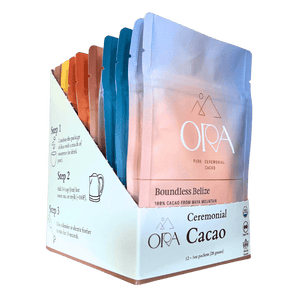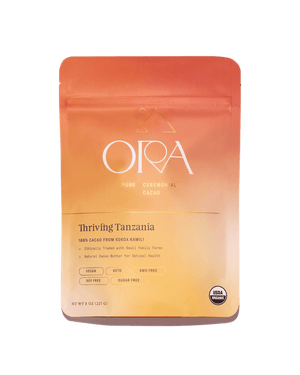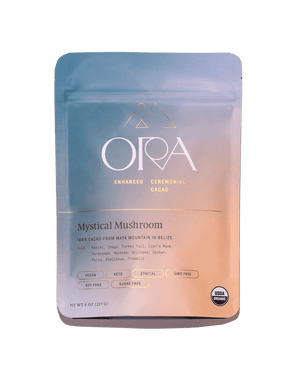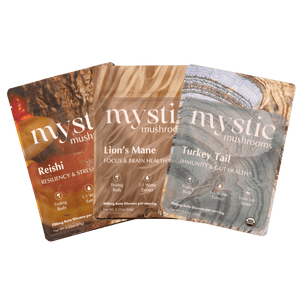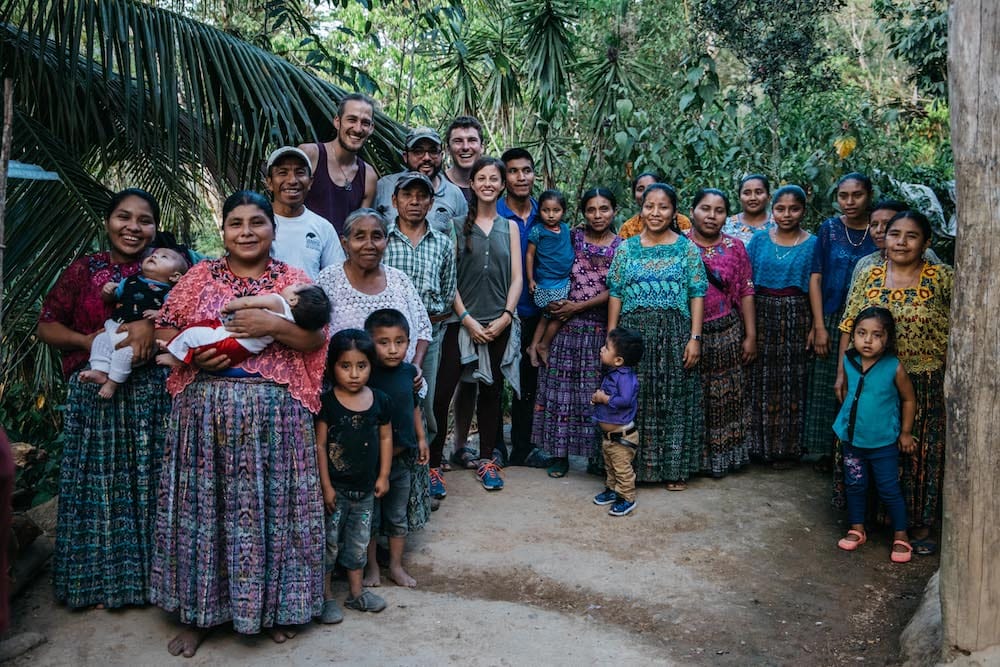Why Do Farmers Need Support?
When calamity strikes, many people in the US have insurance policies to help them recover and rebuild. This is not the case with the indigenous cacao farmers that we purchase from in remote and pristine regions of the planet.
Many of the farmers have little access to financial services, they depend largely on the seasonal cacao harvest for income, and they don’t have substantial savings.
We’ve seen a number of instances where they’ve faced circumstances outside of their means, such as high waters causing the collapse of the only bridge connecting a village to the outside world, or cacao pod rot invading a region because of lack of labor due to COVID 19 for proper organic management.
Such setbacks can require years to recover from and need support from outside the community. As the global climate crisis accelerates, extreme events will become more and more frequent, and it is with certainty that our cacao farmers will be impacted again.
How Does The Fund Work?
Rather than launching one off fundraisers for each calamitous event, we've established a climate resiliency fund to help our farmers prepare for and recover from climate change impacts.
This is part of Ora's long term commitment to the farming communities that we work with, letting them know that they are not alone and that their livelihoods will be protected. Ora contributes a portion of our revenue to the fund annually, and our many loyal customers are invited to contribute to the fund as well.
All funds will be held in safe assets and managed to grow the fund at a rate of 5% annually. The Ora Team works with our partners on the ground to identify and support resiliency projects as needed each year. The remainder of contributions will go towards the growth of the fund.
Our goal is for the fund to achieve $1 million by 2030. In this way, our resiliency fund supports our cacao farmers in perpetuity and does not require the farmers to pay any sort of premiums to participate.
The Fund In Use
-
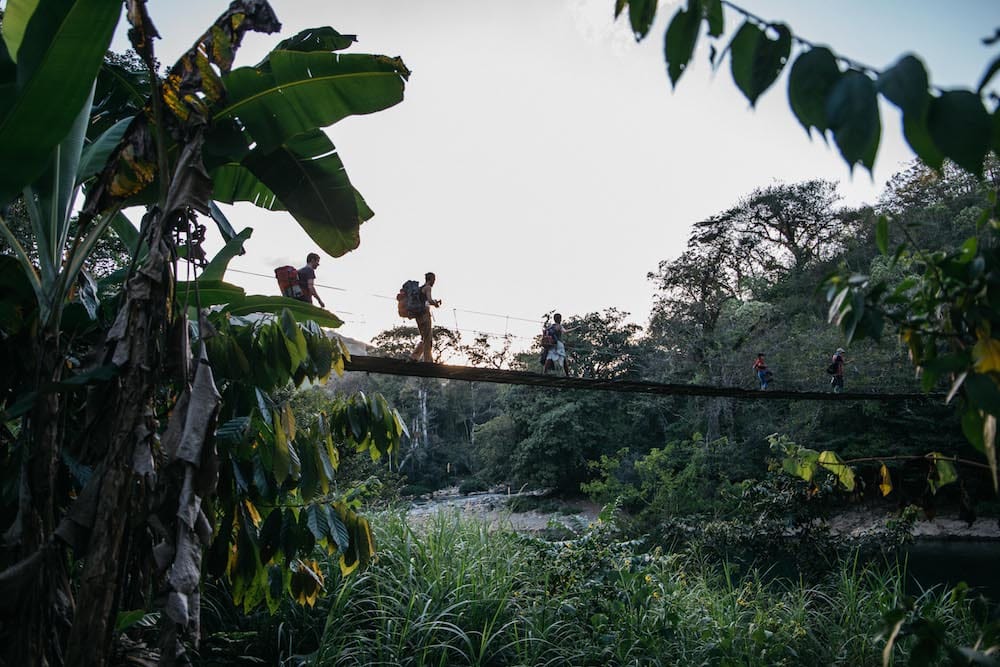
The original plank bridge to the Chivite community that we walked across on our visit! This bridge was wiped out in a flood and the farmers were unable to get their bags of cacao across the river.
-
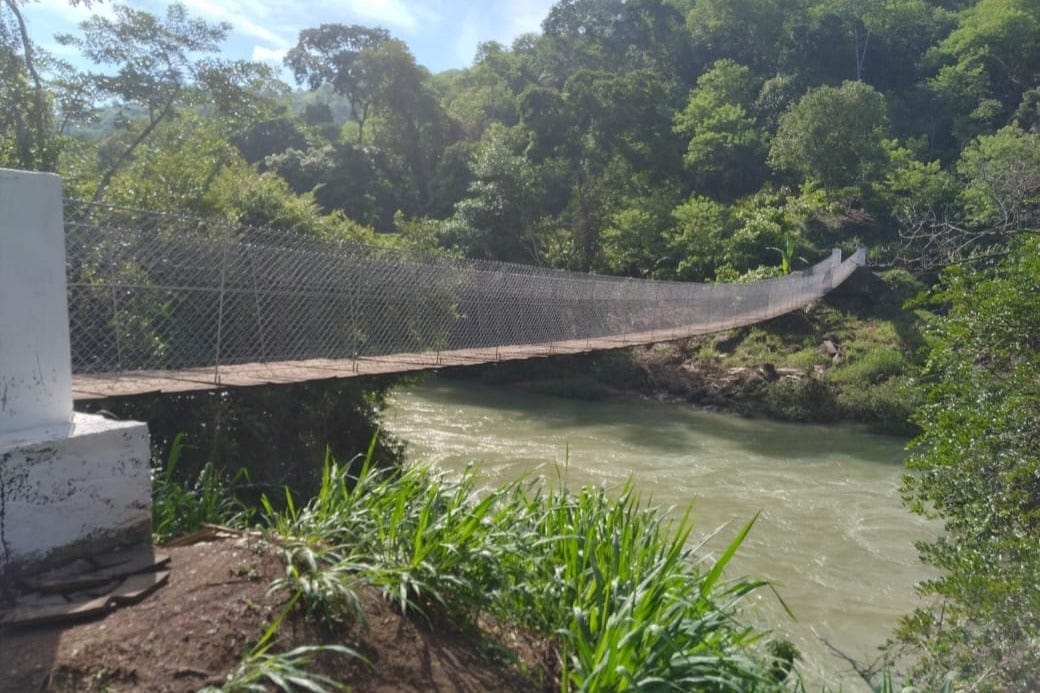
Funds enabled the construction of a new bridge to the Chivite community that is better built to withstand future floods.
What Makes This Fund Unique?
Offering this service to our farmers is a form of reparations for the many hundreds of years of exploitation and genocide that their communities have been subject to.
The colonial model of taking advantage of tropical ecosystems and peoples for the export of tropical goods and enrichment of outsiders is still very much active in the chocolate industry and elsewhere. We believe this resiliency fund is one part of how ceremonial cacao can establish a precedent for a new, reciprocal way of doing business that goes beyond the price we pay for cacao, which is just one method of exchanging value.
We believe this pioneering equity model led by triple bottom line business leaders could spread to support smallholder farmers in many crops outside of cacao.
Unlike traditional insurance, we also strongly believe in taking a proactive role in identifying climate change adaptation measures that can boost the well being of the farming communities before disaster strikes.
What Are The Challenges To Insuring Small Rural Farmers?
For profit insurance services for smallholder farmers typically face a number of challenges, which is why very few exist. It is expensive to acquire, service, and build trust with this very geographically distributed customer base.
Many farmers have little awareness of what insurance is or how it works, let alone having the time and resources to register for insurance or file a claim. There is also not much potential for profitability because the premiums would need to be very low for the farmers to be able to afford it.
For all the above reasons and more, a non-profit resiliency fund that requires no premiums from farmers and no action on their part to enroll or receive benefits is the optimal solution.
Ora Cacao is in an ideal position to administer this resiliency fund through our on the ground partnerships with cacao farming cooperatives.
Survey Data Of Cacao Farmers' Biggest Challenges
-
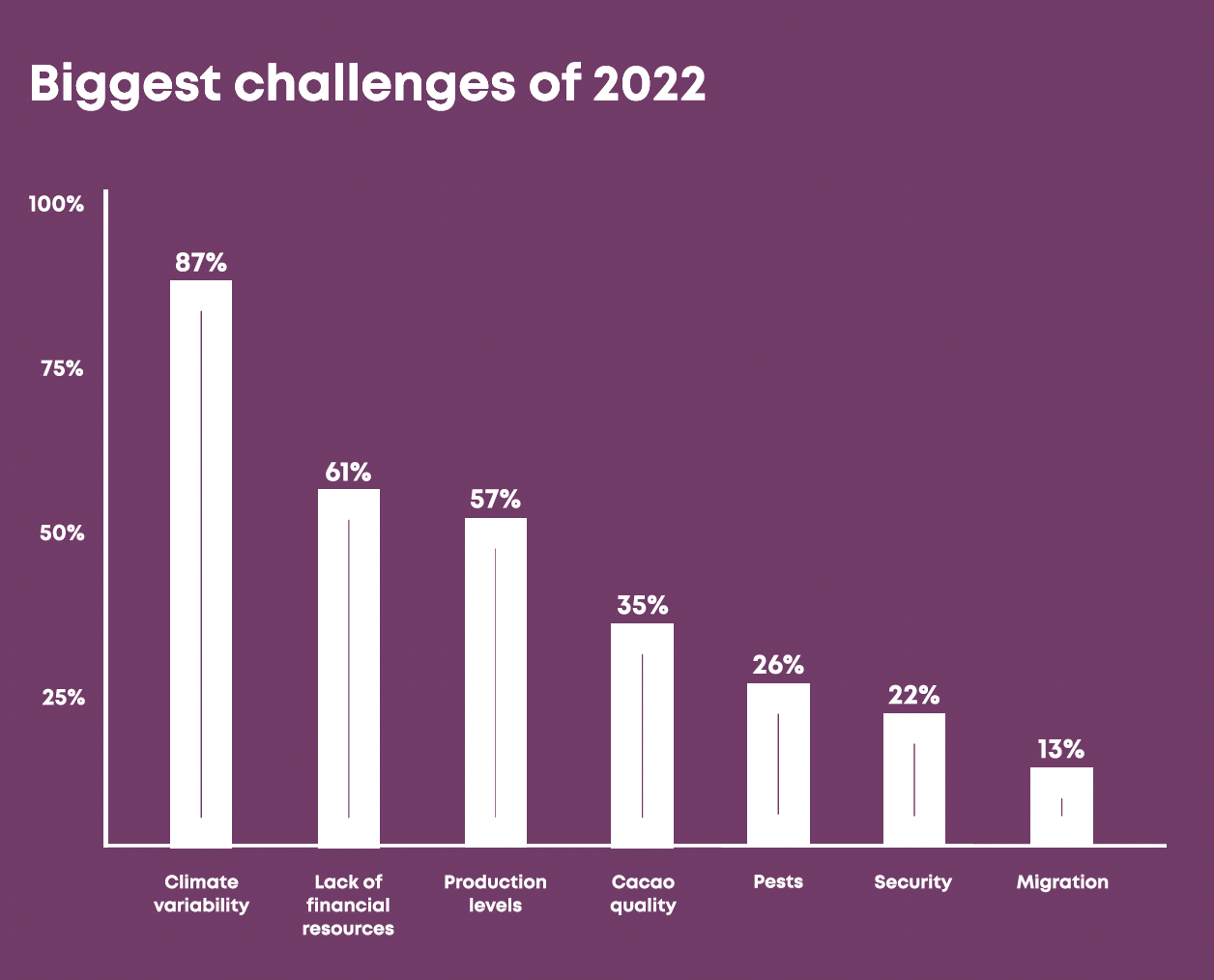
A 2022 survey by Uncommon Cacao shows that 87% of small farmers across their network list climate variability as their biggest challenge.
-
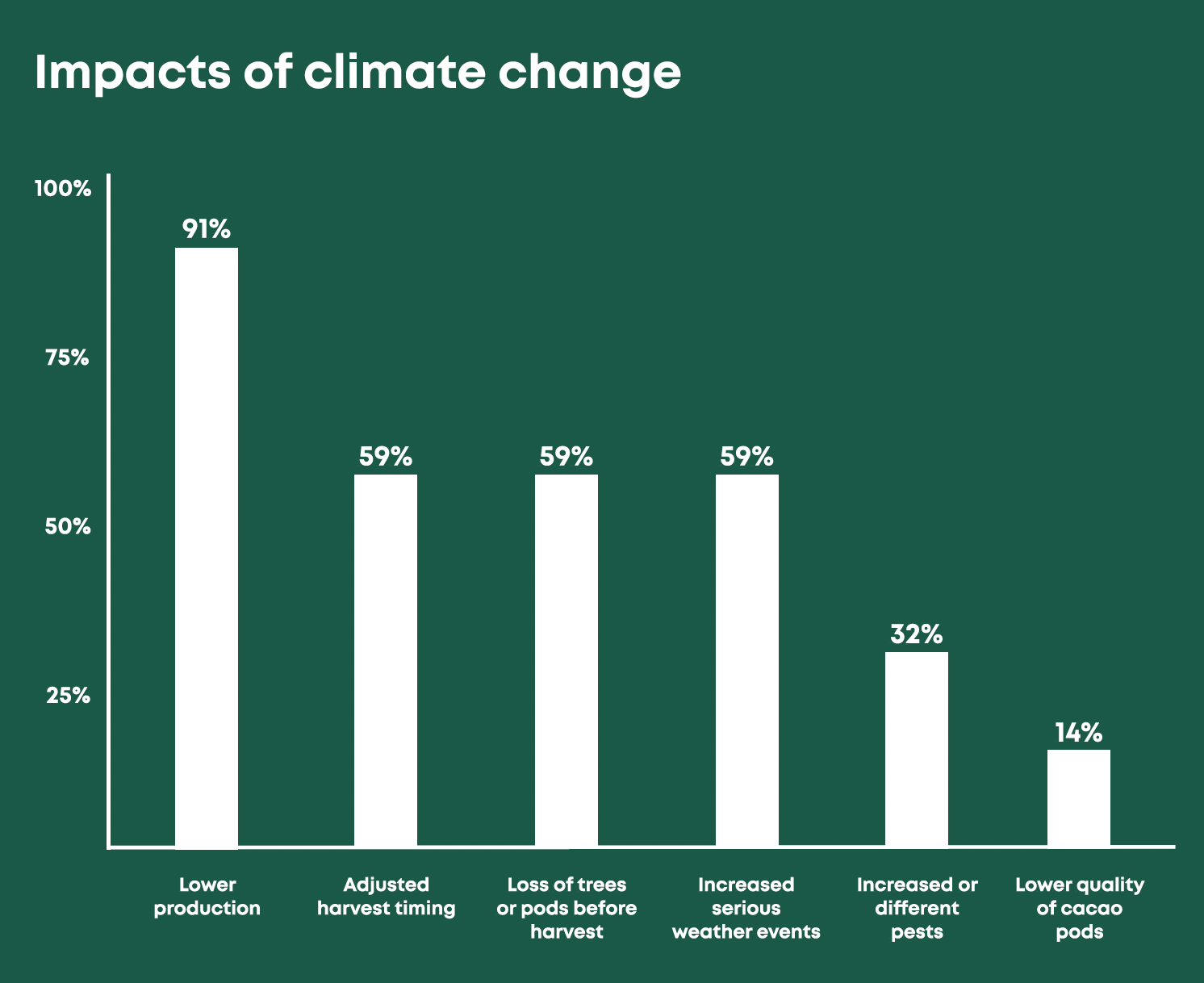
The survey further details the many challenges facing farmers related to climate, such as lower production, adjusted harvest timing, loss of tree and pods before harvest, increased serious weather events, increased or new pests, and low quality of cacao pods.
About Ora Cacao
-
Ora Cacao, headquartered in Graton California, is a globally leading producer of ceremonial cacao. We work with over 1000 smallholder farmers in five different countries of origin: Belize, Colombia, Guatemala, Tanzania, and Uganda. Our farmers are certified organic and employ many regenerative agroforestry practices, making our cacao farms an important mechanism of ecosystem protection and diversity. We utilize a wet cacao purchasing model with centralized fermentation and direct trade purchases: all these combined give our farmers the best cacao prices in their countries, creating a sustainable income for their families, and inspiring the next generation to continue farming cacao.
-
Ora Cacao is a direct to consumer e-commerce company producing premium 100% cacao chips. These can be eaten directly or more often used to make a ceremonial cacao drink. Ora Cacao has shipped to 62 countries with an average of 4.9 out of 5 stars rating from over 3000 reviews. Ora Cacao is a market leader and trend setter with their ceremonial cacao products, leading the way with organic certified products, cacao enhanced with superfoods, sourcing from multiple origins, final product in easy to use discs, and all manufacturing to best food safety practices in a green building facility in the US.

